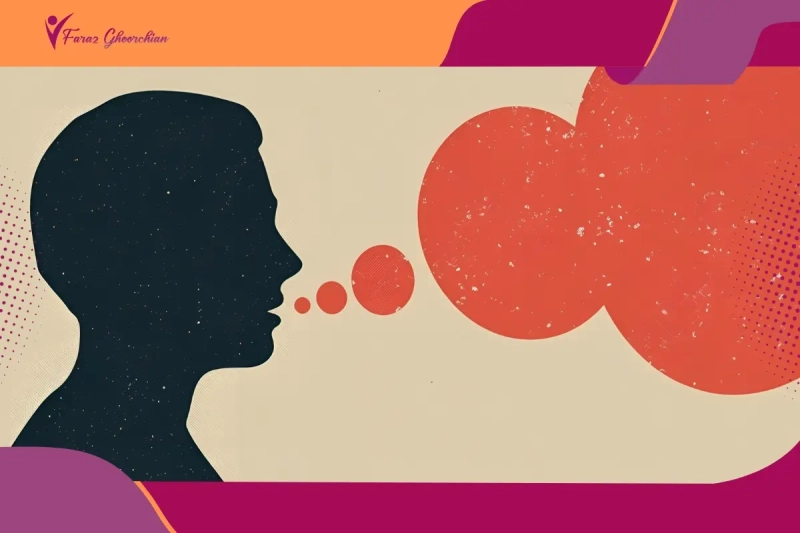- 1. Introduction: The Quiet Struggle Behind Edging
- 2. What is Edging? The Fine Line Between Curiosity and Risk
- 3. The Illusion of Control: Why Managing Others Fails
- 4. How Edging Impacts the Brain and Mindset
- 5. Relapse Triggers: When Control Turns Inward
- 6. Personal Accountability: Why Self-Mastery Matters
- 7. Healthy Boundaries in Recovery: Looking Inward, Not Outward
- 8. The Cycle of Dopamine: Why Edging is Harmful
- 9. Practical Strategies: How to Stop Edging and Take Control
- 10. Building New Habits and Finding Clarity
- 11. Harnessing Energy: Hobbies, Adventure, and Long-Term Success
- 12. Conclusion: Why
-
13.
FAQs
- 13.1. 1- What makes edging risky during recovery?
- 13.2. 2- Can self-control techniques really help with quitting masturbation?
- 13.3. 3- Why do people relapse even after weeks of progress?
- 13.4. 4- Is porn addiction recovery possible without outside help?
- 13.5. 5- How long does nofap mental clarity take?
Introduction: The Quiet Struggle Behind Edging
Almost nobody brings it up out loud, but the tug-of-war with edging has a way of sneaking into daily life. Some people will admit, if pressed, that their best attempts at self-control look a lot like quietly losing to temptation behind closed doors. Someone once compared edging to circling the kitchen when you’re supposed to be on a diet; every second you hang around, the cravings get louder. Searching the internet for quitting masturbation tips often just adds to the confusion, especially when the advice skips over how intense the mental effects of edging can be. Most find it chips away at focus, confidence, and patience, sometimes without them noticing until much later. Facing that reality honestly is where any real progress starts.
What is Edging? The Fine Line Between Curiosity and Risk
Ask around, and the real story of edging sounds nothing like the neat explanations you find online. Someone might try it out of curiosity, hoping that drawing things out will lead to better sexual discipline or make quitting easier. What often happens, though, is a strange back-and-forth. Just as a person thinks they have things under control, those masturbation urges come back stronger. Friends have described feeling restless and distracted for hours after, even snapping at people without realizing why. The dangers of edging rarely show up right away. Instead, they creep in as lost motivation or slipping focus, sometimes making porn addiction recovery feel like one step forward, two steps back. For many, the effects of delayed orgasm are more about the mind than the body. Edging can quietly turn an experiment in self-control into a daily struggle, and most people only notice once they are already in deep.
The Illusion of Control: Why Managing Others Fails
Plenty of people have caught themselves thinking that if only the people around them acted differently, quitting would be a breeze. Maybe it’s frustration with a roommate’s habits or wishing a partner understood the struggle. That urge to stop controlling others is harder than it sounds. Instead of fixing anything, it usually leads to quiet resentment or pointless arguments that drain whatever energy is left for change. True progress starts with owning up to personal choices and building honest personal accountability. It is awkward at first to set boundaries in recovery or to try new self-control techniques, but this is where momentum grows. Most notice that once the spotlight is off everyone else, those stubborn masturbation urges become less overwhelming, and genuine sexual discipline has a chance to develop. Real breakthroughs rarely happen while keeping score of others’ behavior; They come when someone faces their own.
How Edging Impacts the Brain and Mindset
Anyone who has tangled with edging knows it does more than just test willpower. Over time, the brain gets stuck chasing one dopamine high after another, and what starts as a small habit can spiral into constant distraction. These kinds of bad habits are easy to overlook until they start affecting focus and mood. The mental effects of edging are easy to miss at first. Maybe someone finds themselves zoning out at work or getting irritable for no clear reason. Some talk about a kind of edging and brain fog that lingers, making it tough to stay sharp or even care about things that used to matter. Those aiming for real masturbation self-mastery quickly notice how this cycle cuts into their confidence. The goal of nofap mental clarity can start to feel out of reach. What really stands out is how sneaky this pattern can be. Recognizing it is often the first honest move toward getting back to yourself.
Relapse Triggers: When Control Turns Inward
At some point, the blame turns inward. It’s no longer about what someone else did or didn’t do. That’s when emotional triggers relapse tend to hit hardest. It could be something as small as a canceled plan or a rough night alone, but suddenly the old masturbation urges feel louder than ever. People trying to stay on track with porn addiction recovery often push through with sheer willpower, but that kind of fight wears thin. What catches most off guard is how nofap relapse doesn’t always come from desire. Sometimes it shows up through boredom, self-doubt, or just feeling disconnected. And in those moments, comfort habits rush back in fast. Learning real urge control strategies means more than just resisting. It’s about noticing the shift, pausing long enough to breathe, and not hating yourself if you slip. That kind of honesty is where the real work starts.
Personal Accountability: Why Self-Mastery Matters
At some point, most people hit a wall where excuses stop making sense. Things get quiet, and what’s left is that uncomfortable moment of truth. Personal accountability is not about guilt or shame. It is about finally being honest with yourself, even if it stings a little. For those working on masturbation self-mastery, this step is often the one that actually shifts things. No one can force it. You can read tips, follow routines, talk to others, but until there is real ownership, progress stays stuck. Building self-control techniques is clumsy at first. You try, fail, adjust, try again. Some days it clicks, other days it doesn’t. What matters is that quiet decision to keep showing up, not just when things feel easy, but especially when they don’t. That’s how real change starts; Not with the perfect plan, but with imperfect persistence.
Healthy Boundaries in Recovery: Looking Inward, Not Outward
Anyone trying to build new habits knows that real boundaries in recovery are less about shutting people out and more about making space for what matters. Sometimes it is easy to fall into the trap of thinking that someone else’s actions are the problem. The truth is, growth usually starts by looking closer at your own reactions and patterns. When this step is skipped, a quiet masturbation side effect can creep in, like resentment or that feeling you are always one step behind. Building sexual discipline takes small, sometimes awkward steps, like saying no when a situation feels risky or sticking with routines even if no one else gets it. The difference shows up over time, not just in streaks but in how you start trusting your own choices.
The Cycle of Dopamine: Why Edging is Harmful
Most people do not notice the trap of edging right away. It starts as something harmless, maybe just curiosity, but soon enough it becomes a loop. That hunt for a bigger thrill means the brain gets flooded with dopamine, and suddenly it is harder to focus or feel satisfied by normal things. The dangers of edging show up quietly; Some people feel scattered, others just restless or strangely bored. Trying a dopamine detox is not about strict rules; it is more like letting your mind finally slow down. People usually figure out why edging is harmful after enough days where energy runs out early or everything feels flat. For many, breaking the cycle is about choosing presence over chasing the next rush.
Practical Strategies: How to Stop Edging and Take Control
Getting a handle on edging is rarely about finding a magic fix. Most people on the path to quitting masturbation talk about a process full of trial and error, not a straight line. What helps most is building a routine that actually fits your real life, even if it looks a little messy at first. Here are a few things that often work:
- Pay attention to when masturbation urges pop up. Is it right after scrolling online, when you feel lonely, or maybe during late-night boredom? Sometimes just naming the trigger out loud takes the edge off.
- Experiment with urge control strategies. For some, that’s texting a friend, changing up the playlist, or even stepping outside for just a minute. Little changes matter more than you’d think.
- Make your space work for you. Move distractions out of reach or switch up your usual hangouts so routines feel less automatic.
- Try a few self-control techniques like breathing exercises, splashing cold water on your face, or taking a quick walk; Whatever snaps you back into the present.
The key is not chasing perfection, but keeping at it, one honest adjustment at a time.
Building New Habits and Finding Clarity
When someone tries to move on from edging, it usually feels awkward at first, like there is empty time to fill. The trick is picking up new habits to quit fapping that actually feel interesting, not just another chore. Some people end up finding a new favorite coffee shop, others get pulled into a sex benefits exercise class they never thought they would enjoy. It is rarely perfect or planned. What starts as distraction slowly becomes routine, and before long, those habits pull the focus away from old cravings. More than a few are surprised by how much nofap mental clarity builds up in the background. It can be as simple as waking up less tired or realizing you are just more present with friends and family.
Harnessing Energy: Hobbies, Adventure, and Long-Term Success
Most people going through porn addiction recovery find that sitting still with their urges just makes everything feel heavier. It is the restless energy that wears you out, unless you find somewhere better to put it. This is where Harnessing Hobbies & Adventure to Channel Sexual Energy starts to pay off. Maybe someone signs up for a pottery class, takes a road trip, or dusts off an old guitar they forgot they loved. It is not just about staying busy; it is about giving your mind new stories and your body something to chase besides old habits. Over time, these new adventures become anchors, pulling focus away from the struggle and making long-term change actually feel possible.
Conclusion: Why 
Anyone hoping to move past edging or other bad habits quickly learns that waiting for someone else to change never works. The real shift starts with those quiet decisions nobody sees, like getting honest about setbacks or trying something new even when motivation is low. Each small effort builds a little more trust in yourself. Over time, real progress comes from these imperfect and personal choices, step by step and not all at once. In the end, lasting change always starts with you.
FAQs
1- What makes edging risky during recovery?
Edging keeps the brain stuck in cycles of anticipation and reward, which increases the dangers of edging and makes it harder to build lasting sexual discipline.
2- Can self-control techniques really help with quitting masturbation?
Yes, practicing real self-control techniques and adopting daily routines can lower masturbation urges and support long-term change.
3- Why do people relapse even after weeks of progress?
Relapses often happen due to emotional triggers relapse or neglecting urge control strategies. Awareness and quick action can make setbacks shorter.
4- Is porn addiction recovery possible without outside help?
Many people find success through community, but personal commitment to masturbation self-mastery and building habits to quit fapping is what makes change sustainable.
5- How long does nofap mental clarity take?
Most experience clearer thinking and energy after a few weeks, especially if they stay consistent with new routines and dopamine detox practices.


















